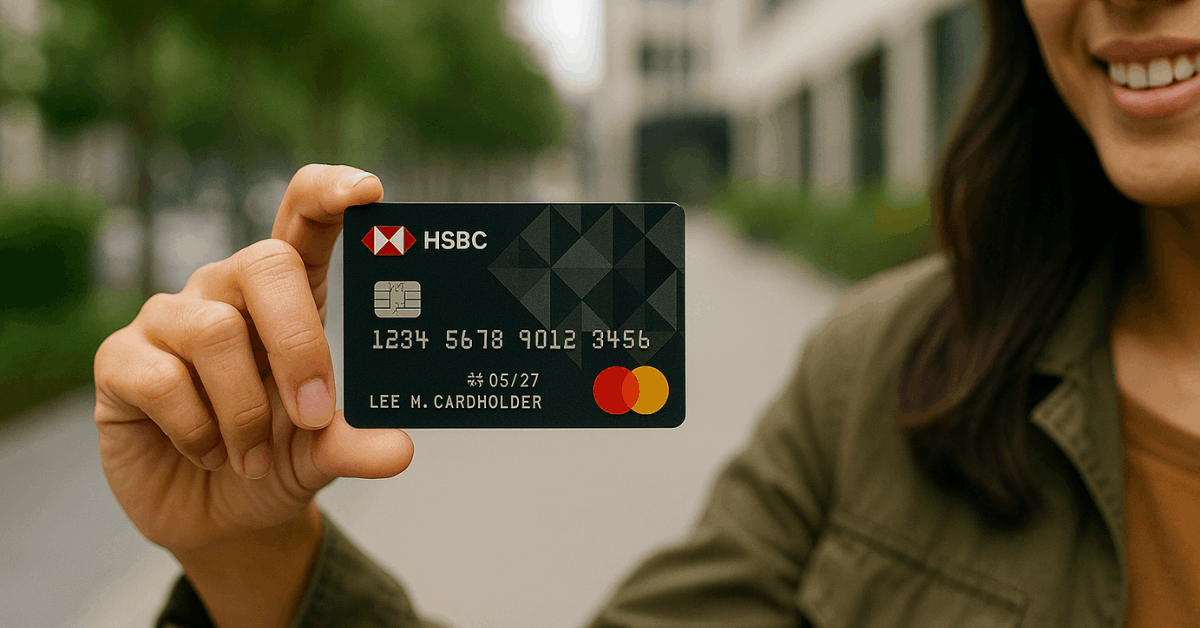HSBC offers several credit cards designed to fit a variety of financial goals. From balance transfers to building your credit, there's a tailored option.
This article provides a clear breakdown of each card, application steps, and important terms. You'll understand what each HSBC credit card offers and how to get started.
Types of HSBC Credit Cards Available
HSBC provides multiple credit card types with specific features for different users. It's important to understand what each card is best for. This helps you choose the right one based on your needs and financial situation.

Balance Transfer Credit Card
This card is best for managing existing debt. It allows up to 33 months interest-free on balance transfers, though a 3.19% fee (minimum £5) applies.
The APR is 24.9% variable, based on a typical limit of £1,200. It’s helpful if you want to consolidate and reduce monthly interest.
You must ensure you repay within the promotional period. Otherwise, interest can build quickly.
Purchase Plus Credit Card
This card provides up to 20 months interest-free on purchases and 17 months for balance transfers. It charges a 3.49% balance transfer fee with a £5 minimum.
The APR is also 24.9% variable, with similar credit limits. It's ideal if you're planning large purchases and want time to pay.
You should avoid missing minimum payments to keep the offer. Budgeting remains essential during the interest-free period.
Rewards Credit Card
This card lets you earn reward points on eligible spending. It’s suitable for frequent card users who repay in full monthly.
The APR is 23.9% variable, based on a £1,200 limit. You can redeem points for travel, gifts, and other perks.
This card adds value to your daily expenses. Make sure to track your spending to earn points effectively.
Classic Credit Card
If you're new to credit or repairing your history, this is the right card. It offers basic features with a higher APR of 29.9% variable.
There's no rewards program or long promotional period. However, responsible use can help you build creditworthiness.
Approval criteria may be more flexible than other cards. You should always pay on time to grow your score.
How to Apply for an HSBC Credit Card?
Knowing how to apply helps avoid delays or rejections. HSBC offers a user-friendly application process. Preparation improves your chance of approval.
What You Need to Apply?
To apply, you need personal and financial details. HSBC requires your address history for the past three years.
You must also provide income and employment records. Bank account information is necessary to link your payments.
Having accurate data ensures a smooth application. Make sure your credit file is up to date.
Application Process
The application process is straightforward if you know what to expect. Below is a bullet list showing what you should do at each step.

- Choose your card: Visit the HSBC UK website and select the credit card that fits your needs.
- Fill out the application: Complete the online form with accurate personal and financial information.
- Receive a decision: HSBC may provide an instant decision or follow up for more documents.
- Undergo a credit check: The bank may perform a soft or hard credit check based on your details.
- Receive your card: If approved, your card will be mailed to you with activation instructions.
- Activate and use: Follow the enclosed steps to activate your card and begin using it responsibly.
Eligibility Criteria
You must be at least 18 years old and live in the UK. A regular income and good credit history improve your approval odds.
Avoid applying for several cards within a short time. HSBC considers your debt-to-income ratio and credit utilization.
Meeting all criteria improves the chances of receiving your desired limit. Keep your financial records organized.
Understanding Interest Rates and Fees
Interest rates and charges affect how much you repay. It's important to know how APR works and what extra costs apply. Choose your card based on how you plan to use it.
APR Breakdown
APR stands for Annual Percentage Rate. It includes interest and most fees averaged over a year. Balance Transfer and Purchase Plus Cards have 24.9% APR.
The Rewards Card has a slightly lower 23.9% APR. The Classic Card comes with 29.9% APR, reflecting higher risk. Your actual rate depends on your credit profile.
Balance Transfer Fees
Balance transfers come with setup fees. The Balance Transfer Card charges 3.19%, and Purchase Plus charges 3.49%.
Both require a minimum fee of £5. These fees are applied upfront when the transfer occurs.
You should only transfer if the long-term savings outweigh the fee. Avoid using the card for purchases while paying off a transfer.
Other Charges
Late payments may result in penalty fees. Cash withdrawals incur higher interest and additional charges. Foreign transactions may have currency conversion fees.
Always read the terms and conditions before using your card. Setting up direct debit for minimum payments helps avoid late fees. Check your statements monthly.
Basics of Credit Card Usage
Understanding how credit cards function is essential. They are powerful tools when used responsibly. Learn the fundamentals to avoid common mistakes.
What Is a Credit Card?
A credit card allows you to borrow money from your bank. You can use it for purchases or to withdraw cash from ATMs.
You're expected to repay in full or over time. Interest is applied if you don’t pay the full amount.
Each card has a credit limit set by the provider. It’s not free money, but a credit line with terms.
How Do Credit Cards Work?
You spend using the card, then repay the borrowed amount. If you don’t pay in full, interest applies to the balance.
Some cards offer perks like purchase protection or cashback. You should monitor your credit usage and stay within limits.
Misuse can hurt your credit score. Responsible use helps build long-term financial health.
Additional Features and Benefits
Some HSBC cards come with added functionality. Knowing these benefits lets you get more from your card. It also helps avoid costly surprises.
Credit Card Balance Transfers
A balance transfer lets you move debt from another card. This can reduce your interest payments or simplify repayment.
HSBC's Balance Transfer Card offers up to 33 months interest-free. Remember the balance transfer fee applies upfront.
You must complete the transfer within the qualifying period. It won’t cancel your old account unless you close it yourself.
Cash Withdrawal Option
You can withdraw cash at ATMs using your HSBC card. However, interest begins immediately on cash withdrawals.
Fees often apply, making this a costly feature. Use it only when no better alternative exists.
Withdrawals don’t benefit from interest-free periods. Always consider other funding methods first.
Rewards and Offers
The HSBC Rewards Credit Card lets you earn points as you spend. These can be used for travel, gift cards, and more.
It’s best suited for users who repay their balance monthly. This avoids interest and maximizes reward value.
The more you use it, the more points you collect. Track redemption options through your online account.
Contact and Support Information
It’s important to have access to help if you need it. HSBC provides clear communication options. You can reach out for questions, applications, or account support.
How to Reach HSBC
If you need assistance, call 0800 328 1370. This is HSBC's dedicated number for credit card help.
Lines are typically open during standard business hours. You can also access support through the HSBC online portal.
Be prepared with your personal information for verification. This speeds up the process.
Final Thoughts: Choose Wisely, Use Smartly
HSBC offers diverse credit card choices tailored to different goals. Whether you want to transfer debt, earn rewards, or build credit, there's a fitting option.
Know the terms, rates, and conditions before applying. Start your application prepared and use your HSBC credit card responsibly to gain the full benefits.









